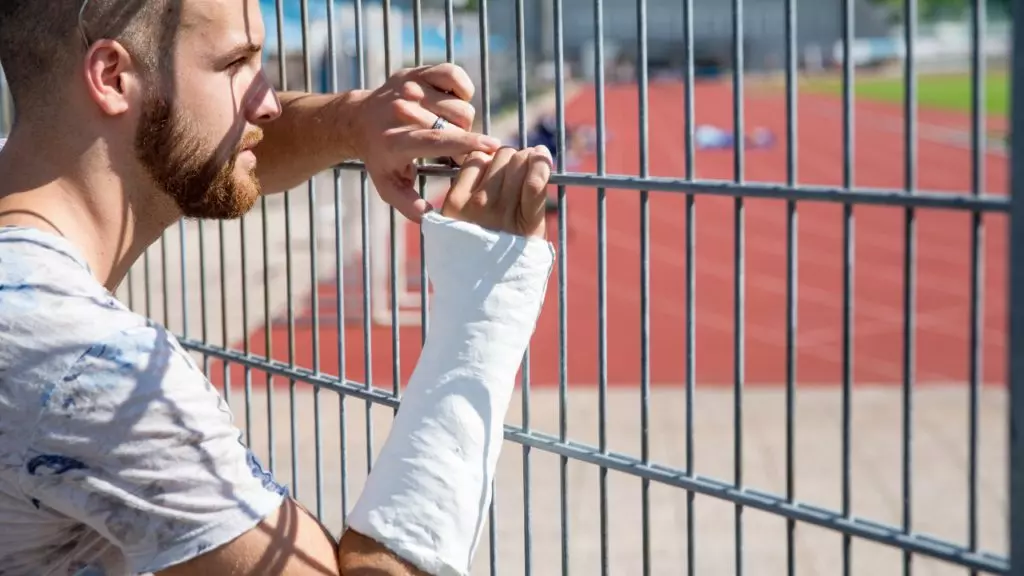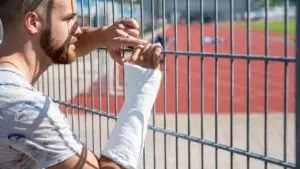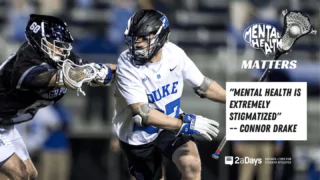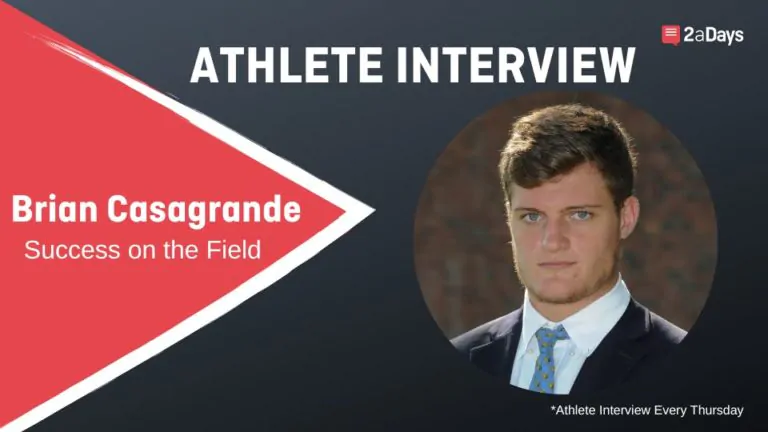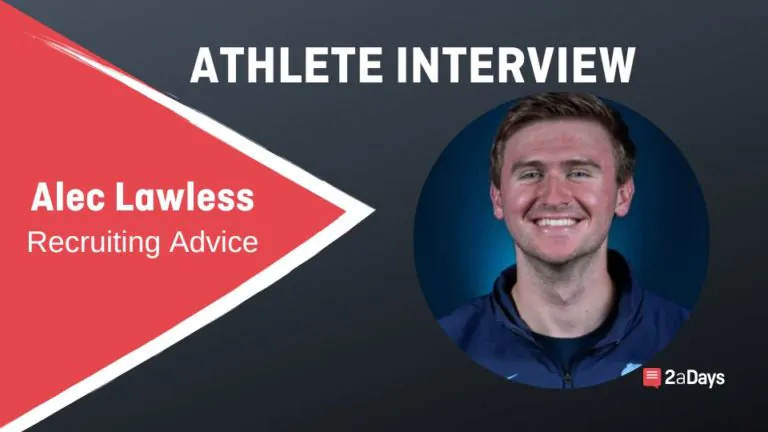A study of 353 male college athletes from a variety of sports found 51% exhibited symptoms of depression after being injured and 12% became moderately to severely depressed, according to the New York Times. Self-evaluating can help athletes recognize signs and symptoms of struggling to cope with injuries.If you think you may need help, please see an athletic trainer, team psychologist, coach or parent. Remember you are not alone; those around you will be willing to help.
What is Post-Injury Depression?
Post-injury depression is onset by an injury, and it is most common among athletes. This condition affects any age and sex, and pertains to all sports. Post-injury depression is often overlooked, especially in athletes who are not diagnosed with clinical depression. Some often think the athlete is just going through the process of dealing with the injury and will be fine.
Post-Injury Depression Statistics
When it comes to post-injury depression, 85% of athletes do not return to their pre-injury performance level due to a fear of re-injury. This could be lowered if more people were aware of post-injury depression and how to cope with it as an athlete, as well as how to help athletes through it. Another alarming statistic is that 68% of athletes meet the criteria for a depressive mood disorder; 21% of those athletes did not report any depression symptoms before the injury, and 47% of the athletes said that the injury worsens their depression symptoms.
Signs and Symptoms related to post-injury depression
As an athlete who has sustained an injury, it is essential to be aware of depression signs so you can seek help. It is also vital for teammates, coaches, parents, friends, and other people who may be around the athlete to be aware of these signs as well. Most times, it's hard for an athlete to admit they have a problem. They might feel like a failure or feel as though they are letting their teammates down.
Signs and symptoms for poor adjustment to athletic injury include, but are not limited to:
- Anger and confusion
- An obsession with “when can I return?”
- Denial
- Repeatedly returning to sport too soon and re-injury occurring
- Exaggerated bragging about small accomplishments
- Dwelling on minor complaints and setbacks
- Guilt about letting the team down
- Withdrawal from significant people in their life
- Rapid mood swings
- Statements about never returning to sport and recovering
- Fear to return to sport
Other signs and symptoms to look for include:
- Mood swings
- Identity loss
- A lack of effort in everyday life (dress, school, work, social life)
- Increased anxiety
- Personality change
- Lack of confidence
Ways to help
If you are a coach, you should make sure that the injured athlete is included in team activities. Whether it be team meetings, film, team bonding activities, huddles during a game, helping with recruits or lifts. Injured athletes can still work on areas that are not injured, unless a doctor says otherwise. It means a lot to athletes when coaches check in on their rehabilitation process.
As a parent, you should stay positive and focus on your child's recovery. Parents can help their child with their rehab program and discuss their progress daily. Have open discussions on how they are feeling about their injury. A parent should be concerned about their child's injury in the first 24 to 48 hours after their injury. They should seek out the best doctors, so their child is confident they will be getting the best care.
A good teammate should support the injured athlete through their recovery process by encouraging them with their rehab and making sure to include them in activities outside of the sport such as dinners, movies, team conversations or team hanging outs.
Injury or reinjury warning signs
- Long daily training sessions coupled with other activities
- No days off
- Increased fatigue or tiredness
- Quick return to full training after injury
- Coaches pushing for an athlete to return to their sport when the athlete has not finished their recovery program
- Improper eating habits
- Lack of sleep
- Not working on your flexibility or warm-ups
- Not training correctly
Things to Keep in Mind
Every athlete reacts to an injury differently; psychological interventions are specific to each athlete. To make sure that you have the correct intervention, you should understand which psychological response the athletes are going through based on the Integrated Model of Response to Psychological Injury. More about this model can be found at https://core.ac.uk/download/pdf/43233590.pdf.
Remember that it is okay to ask for help, post-injury depressions are usually temporary, the sooner you get help, the sooner you will recover emotionally.
Edited by Caroline Kurdej
* Originally published on January 30, 2020, by Shelby Gonser
